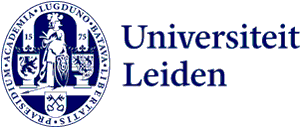70 search results for “vegetation” in the Staff website
-
Flooded polder helps fight mosquito-borne diseases
One and a half hectares of polder, a large volume of water, and a group of curious researchers from various universities and scientific backgrounds led by ecologist Maarten Schrama. These are the ingredients needed to answer the question: how do water retention areas affect nature, animals, and our…
-
What rare plants and animals can you find on campus? Join in the BioBlitz
Do you also love a city where nature can bloom, crawl and flutter freely and exuberantly? And do you fancy a challenge out in the fresh air? If so, grab your mobile and take part in the BioBlitz 'Higher Education is Flourishing' from 22 May.
-
Buzzing decline: Dutch landscape is losing insect-pollinated plants
The Netherlands is losing plant species that rely on pollination by insects. Leiden environmental scientist Kaixuan Pan demonstrates this after analysing 87 years of measurements from over 365,000 plots. The news is alarming for our biodiversity and food security. ‘75 per cent of our crops and 90% of…
-
Neanderthals changed ecosystems 125,000 years ago
Hunter-gatherers caused ecosystems to change 125,000 years ago. These are the findings of an interdisciplinary study by archaeologists from Leiden University in collaboration with other researchers. Neanderthals used fire to keep the landscape open and thus had a big impact on their local environment.…
-
Green roofs and tile flipping: research in The Hague on the best approach to climate and species diversity
Does a communal garden provide cool air and warm neighbourly relations? Does an additional row of trees increase biodiversity? These kinds of questions are key in the COMBINED project, on which Leiden scientists and residents of The Hague, among others, can work for six years with 4 million euros from…
-
Students help make Maldives more fertile
Its idyllic setting and white sandy beaches have made the Maldives a hotspot for tourists. This provides an income but is a problem for the fragile natural environment. Students from various universities worked with the local people to make the soil more fertile. How did they go about it?
-
Neanderthals ran ‘fat factories’ 125,000 years ago
Fat is a very valuable food component, packed with calories, especially important when other resources might be scarce. Our earliest ancestors in Africa already cracked open bones to extract the fatty marrow from bone cavities. But now a new study published in Science Advances demonstrates that our…
-
First Psychology Connected on climate change: "Especially as a researcher, you shouldn't always take the plane to a conference"
On Thursday afternoon, 6 October, Lara Wierenga, Anne Urai and Niels van Doesum kicked off the first edition of Psychology Connected, a recurring event organised by the Science Committee, where big questions and small conversations easily alternate.
-
Faculty of Archaeology launches dinosaur-focused research
Many an archaeologist, at some point in their career, is asked what type of dinosaur they discovered. Instead of once again patiently explaining that we do not do dinosaurs, the Faculty Board has now decided to listen to society’s call. ‘It is clear that the general public feels that dinosaurs are relevant…
-
Co-creation with researchers in Indonesia: ‘We welcome misunderstandings’
How do you co-create with researchers in other parts of the world? LDE wants to gather and share knowledge on the grand challenges and to do so across national borders. A delegation of 27 researchers will therefore travel to Indonesia at the end of October to take part in the LDE-BRIN Academy.
-
Writing history together in the Transvaal
Alicia Schrikker doesn't usually get involved in urban history. As a senior lecturer, her research field is generally the colonial history of Asia and partly South Africa. So, the fact that she is going to carry out an urban history research project together with colleagues, is something that even she…
-
Better health begins close to home (and not in the doctor’s surgery)
Should we ban snack bars from neighbourhoods where residents are overweight or have diabetes? At the Common Sense about Health knowledge festival, scientists, civil servants and other professionals discussed how South Holland can become healthier. The Healthy Society Map makes it clear where there are…
-
Educational adventures in the tropics: discovering rainforests in Borneo
Photographing fluorescent flowers, searching for frogs and shooting tropical cucumbers out of trees: this is only a small part of the course Tropical Biodiversity and Field Methods. For this class, master’s students biology traveled to Malaysian Borneo for two weeks to gain experience in fieldwork.…
-
Multiple Scales: theory and applications
Conference
-
Botanical drawing
Arts and leisure, Arts and leisure
-
Visualizing Multispecies Resistance: Pan-Amazonian Indigenous Perspectives
Lecture
-
3 October University: from Russian DNA to drug-related violence
In prehistoric times there was a huge wave of migration, from the steppes in Russia and Ukraine to West Europe. The newcomers’ genes began to dominate. Archaeology research in Leiden into burial mounds in the Veluwe and Utrechtse Heuvelrug areas of the Netherlands yielded this spectacular conclusion.…
-
All Roads Lead to Rome? New Reflections on Ecology and Mobility in the Roman Empire
Lecture, Global Questions Seminar
-
In conversation with our researchers during the Dutch Bio Science Week
The past few days we interviewed several of our researchers about their various studies during Dutch Bio Science Week. They answered questions such as what impact their research has on our future and with whom they have established valuable collaborations.
-
History of Water Management in Yemen: An Interdisciplinary Study
Lecture, Leiden Yemeni Studies Lecture Series
